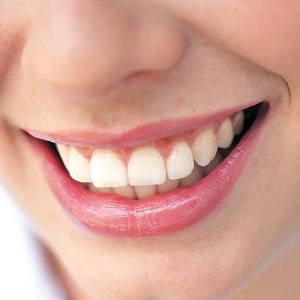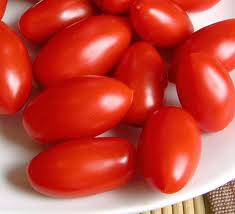High Blood Pressure (Hypertension) Your risk for high blood pressure increases with age. It is also related to your weight and certain lifestyle habits. High blood pressure can lead to severe complications without any prior warning symptoms, including heart attack or stroke. Treating high blood pressure can reduce your risk of heart disease, stroke, and kidney failure. Finding out you have high blood pressure and then working with your doctor to manage it can pay huge health dividends. What Is Hypertension? Hypertension, or high blood pressure, is a common condition that will catch up with most people who live into older age. Blood pressure is the force of blood pressing against the walls of your arteries. When it’s too high, it raises the heart’s workload and can cause serious damage to the arteries. Over time, if high blood pressure is uncontrolled this increases the risk of heart disease, stroke, and kidney disease. Causes of Hypertension? Normal blood pressure readings will fall below 120/80, while higher results over time can indicate hypertension. In most cases, the underlying cause of hypertension is unknown. The top number (systolic) shows the pressure when your heart beats. The lower number (diastolic) measures pressure at rest between heartbeats, when the heart refills with blood. Occasionally, kidney or adrenal gland disease can lead to hypertension. Certain chronic conditions also may increase your risk of high blood pressure, including high cholesterol, diabetes, kidney disease and sleep apnea. Family history. High blood pressure tends to run in families. Symptoms of Hypertension High blood pressure is sometimes called a silent killer because it may have no outward symptoms for years. In fact, one in five people with the condition don’t know they have it. Internally, it can quietly damage the heart, lungs, blood vessels, brain, and kidneys if left untreated. It’s a major risk factor for strokes and heart attacks in the United States. High Blood Pressure Screening Blood pressure is expressed as two numbers. The first (systolic) is the pressure of your blood against your artery walls when the heart beats. The second (diastolic) is the pressure between beats. Normal adult blood pressure is less than 120/80. High blood pressure is at or above 140/90. A reading between those two is considered pre-hypertension. Your doctor can advise you as to how often to have your blood pressure checked. Normal blood pressure is below 120/80; blood pressure between 120/80 and 139/89 is called “pre-hypertension”, and a blood pressure of 140/90 or above is considered high. A Warning Sign: Pre-hypertension Almost one-quarter of Americans have prehypertension. Their blood pressure is consistently just above the normal level — falling anywhere between 120 and 139 for systolic pressure or 80 to 89 for the diastolic pressure. People in this...
Health Tips
Definition: Vitamin A nutrient that the body needs in small amounts to function and stay healthy. Sources of vitamins are plant and animal food products and dietary supplements. Some vitamins are made in the human body from food products. Vitamins are either fat-soluble (can dissolve in fats and oils) or water-soluble (can dissolve in water). Excess fat-soluble vitamins are stored in the body’s fatty tissue, but excess water-soluble vitamins are removed in the urine. Examples are vitamin A, vitamin C, and vitamin E. Effect of cooking on vitamin content Shown below is percentage loss of vitamins after cooking averaged for common foods such as vegetables, meat, fish. Vitamin C B1 B2 B3 B5 B6 Folate B12 A E Average %loss 16 26 -3 18 17 3 20 ? 11 11 Table below shows effects of heat such as heat from boiling, steaming, cooking etc. and other agents on various vitamins. Effect of cutting vegetables can be seen from exposure to air and light. Water soluble vitamins such as B and C seep into the water when boiling a vegetable. Vitamin Soluble in Water Exposure to Air Exposure to Light Exposure to Heat Vitamin A no partially partially relatively stable Vitamin C very unstable yes yes yes Vitamin D no no no no Vitamin E no yes yes no Vitamin K no no yes no Thiamine (B1) highly no ? > 100°C Riboflavin (B2) slightly no in solution no Niacin (B3) yes no no no Pantothenic Acid (B5) quite stable ? ? yes Vitamin B6 yes ? yes ? Biotin (B7) somewhat ? ? no Folic Acid B-9 yes ? when dry at high temp Vitamin B-12 yes ? yes no Source, Medical Dictionary,...
Your oral health and Your Transplant: Excellent dental care is essential for everyone. However, it is especially important for transplant recipients because oral problems can lead to oral infections, which can release bacteria into your bloodstream. The medications you take to prevent your body from rejecting your new organ, unfortunately also put you at a higher risk for infection. To reduce your risk, good oral hygiene is a must: Brush your teeth twice daily Brush your tongue once daily Gently floss your teeth once daily Replace your toothbrush every 3 to 4 months Keep your regular dental appointments Before having any dental work, including teeth cleaning, you will need to take an antibiotic to help prevent infection. You can get a letter from your transplant team letting your dentist know that you will need a prescription for an antibiotic, and which antibiotic is recommended (erythromycin should be avoided due to potential interaction with some immunosuppressive medications). Resource: Transplant Experience http://www.transplantexperience.com/kidney/body/after/oral Read more Your oral...
Tomatoes: Cancer fighting foods Lycopene is the pigment that gives tomatoes their red color, and is one of the strongest carotenoids that, acts as an antioxidant. Tomatoes are an excellent source of vitamin C and a good source of vitamin A. Research shows that tomatoes may cut the risk of bladder, stomach and colon cancers in half if eaten daily. Some studies have linked eating tomatoes to reduced risk of several types of cancer, including prostate cancer, colon, stomach, breast, endometrial, lung,and pancreas.. They are excellent sources of antioxidants, dietary fiber, minerals, vitamins, zero fat and zero cholesterol. Studies also suggest that processed tomato products such as juice, sauce, or paste increase the cancer-fighting potential. Tomato (Lycopersicon esculentum), raw, Nutrition value per 100 g. (Source: USDA National Nutrient data base) Principle Nutrient Value Percentage of RDA Energy 18 Kcal 1% Carbohydrates 3.9 g 3% Protein 0.9 g 1.6% Total Fat 0.2 g 0.7% Cholesterol 0 mg 0% Dietary Fiber 1.2 g 3% Vitamins Folates 15 µg 4% Niacin 0.594 mg 4% Pyridoxine 0.080 mg 6% Thiamin 0.037 mg 3% Vitamin A 833 IU 28% Vitamin C 13 mg 21.5% Vitamin E 0.54 mg 4% Vitamin K 7.9 µg 6.5% Electrolytes Sodium 5 mg >1% Potassium 237 mg 5% Minerals Calcium 10 mg 1% Iron 0.3 mg 4% Magnesium 11 mg 3% Manganese 0.15 mg 6.5% Phosphorus 24 mg 3% Zinc 0.17 mg 1.5% Phyto-nutrients Carotene-ß 449 µg — Carotene-α 101 µg — Lutein-zeaxanthin 123 µg — Lycopene 2573 µg — Source : USDA, WebMD, Foods that Heal, Medical Encyclopedia, CDC Definition: lycopene(LY-kuh-peen)A red pigment found in tomatoes and some fruits. It is an antioxidant and may help prevent some types of cancer. ...
Symptoms of Heart Attack Heart disease is the #1 health problem in the United States. Heart disease is a condition that can occur when cholesterol and other fat deposits in the arteries build up, and cause the arteries to narrow, restricting blood flow to the heart. As this happens, the heart does not receive enough oxygen to work properly, which can lead to heart attack or stroke. A person having a heart attack should receive emergency treatment quickly. It’s important to know the symptoms of a heart attack and seek immediate medical attention if these symptoms occur. Heart Attack Symptoms: A heart attack is an emergency even when you think the symptoms are mild. Warning signs include: Pain or pressure in the chest. Discomfort spreading to the back, neck, jaw, throat, or arms. Nausea, indigestion, or heartburn. Weakness or faintness , anxiety, shortness of breath, or difficulty breathing. Rapid or irregular heartbeats. Seek immediate medical attention if you experience any of these symptoms. What Is a Heart Attack? Every year, more than 1 million Americans have a heart attack – a sudden interruption in the heart’s blood supply. This happens when there is a blockage in the coronary arteries, the vessels that carry blood to the heart muscle. When blood flow is blocked, heart muscle can be damaged very quickly and die. Prompt emergency treatments have reduced the number of deaths from heart attacks in recent years. All chest pains and related discomforts should be reported to the doctors who will do the necessary tests and prescribed the necessary medication. Your overall lifestyle, diet– that is, what you eat), how frequently you exercise, and the way you handle stress, all play an important role in your recovery from a heart attack. In addition, a healthy lifestyle can help you prevent a heart attack by controlling risk factors that contribute to the narrowing of the coronary arteries that supply blood to your heart. Natural Remedies are the best:- Here are some Heart Healthy Foods that can help save your heart. Definition “A heart attack usually occurs when a blood clot blocks the flow of blood through a coronary artery — a blood vessel that feeds blood to a part of the heart muscle. Interrupted blood flow to your heart can damage or destroy a part of the heart muscle. A heart attack, also called a myocardial infarction, can be fatal. This is often because people confuse their symptoms with a minor illness, like indigestion, and delay going to the hospital. They try to tough out their symptoms and receive treatment too late.” Read more information here at this link. Call...
When it comes to your heart it matters. Your heart can be easily broken in many ways, or more ways than one. At some point in our life we have all felt the pain of a broken heart when it comes to relationships or maybe something else.. However when it comes to the health of your heart that is another matter. There are so many things we can do to help keep your heart healthy. Exercise: Exercise regularly, walking, jogging and riding a bike are very good choices. Please check with your Doctor to see if you can do any of these activity. Walking is the safest. Check-up with your Doctor and ask to do blood test: check cholesterol level to see if you are at risk. Diet: Follow a diet rich in fish like tuna, salmon,vegetables – green leafy veggies and salads and do not forget the fresh fruits. It is very important to get regular check-ups and discuss with your Doctor about the health of your heart and what you can do to prevent or avoid heart problems....





